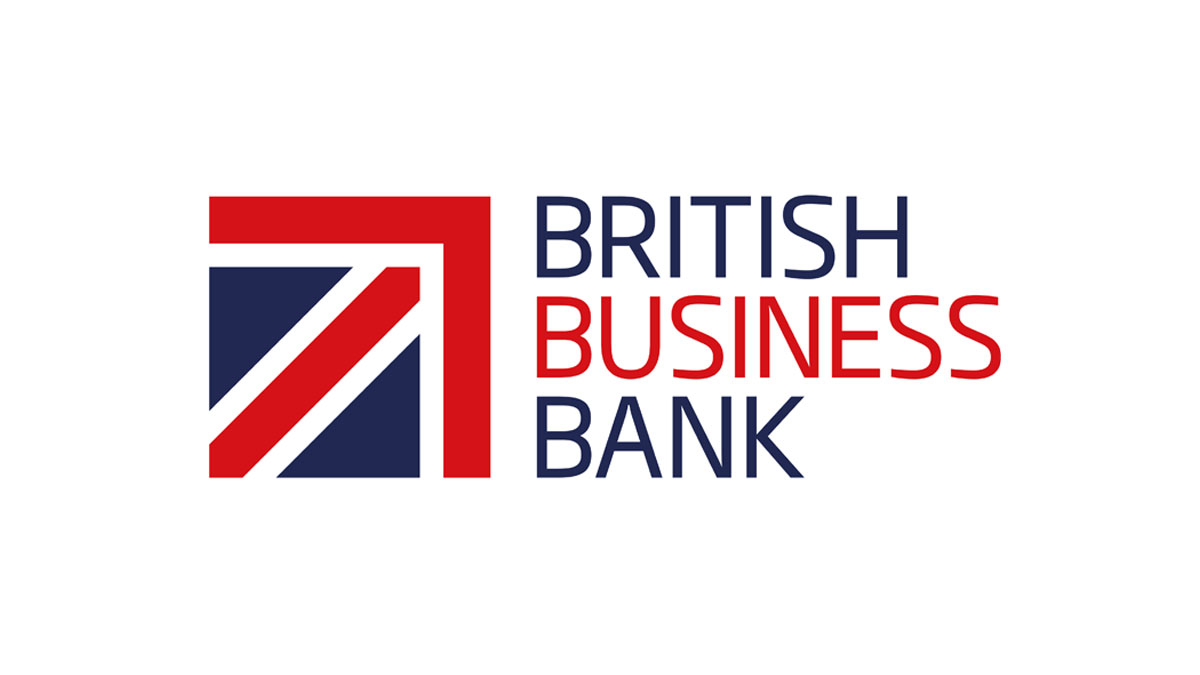Published
- 08:00 am

OneStream Software, a leader in corporate performance management (CPM) solutions for mid-sized to very large enterprises, announced a new OneStream MarketPlace solution that helps organizations provide control and governance over application change requests. The new Application Control Manager solution provides an easy way for end-users to request changes to OneStream applications and provides multi-level approval workflow around change requests.
Additional capabilities of Application Control Manager include the following:
- Reads and detects changes in meta data in GL/ERP, data warehouses and MDM tools and synchronizes these changes with OneStream.
- Provides full audit reporting on application change requests.
- Supports management of meta data changes across development, test, and production environments.
- Exports meta data changes back to source systems.
With the rapid pace of change in today’s global economy and business landscape, finance teams need the agility to adapt to change. However, they must also ensure the right controls and governance processes are in place before changes are made to book of record reporting systems, as well as planning and analytical applications. This includes managing and controlling changes to the chart of accounts, entity structures, departments, and other analytic dimensions such as products and channels. This also pertains to changes to user access and security privileges.
“This particular MarketPlace solution was acquired from OneStream partner Finit, who originally developed and implemented the solution for several customers,” said Tom Shea, CEO of OneStream Software. “Application change management capabilities are becoming of increasing interest with existing and prospective OneStream customers. And since Finit had already developed a solution that addresses many of these requirements, rather than developing a new solution from scratch, OneStream was able to accelerate our time to market by acquiring and enhancing the Finit solution.”
Like all OneStream Marketplace solutions, Application Control Manager was developed directly on the OneStream platform allowing customers to download the solution directly into their existing applications and immediately take advantage of this functionality without adding 3rd party technologies. “We’ve invested significant time, money and resources in architecting our platform and MarketPlace to deliver fast time to value and zero disruption for our customers to take advantage of new solutions like this,” said Craig Colby, President of OneStream Software. “This is the first of many MarketPlace solutions to come from a partner and we are very excited to see the partner community driving value for our customers.”
“Ensuring the right controls are applied around application change requests is critical to ensuring the integrity of financial results and forecasts,” said Jackie Najm, Director of Financial Systems at Tenneco. “Having the change requests, approvals and all related documentation in one place within the OneStream Application Control Manager has alleviated many past pain points around the change control process. The OneStream Application Control Manager not only streamlined our control processes, but it also managed to eliminate 98% of our audit deviations around metadata and security controls.”
“OneStream’s platform capabilities combined with Finit’s domain expertise allowed me to design and develop a Marketplace solution, originally named RequestIt™, for data governance and application control,” said Samantha Williams, Director of Product Management at Finit. “This solution added great value to our clients, increasing efficiency and improving processes in these areas. All of us at Finit are excited that this solution will be available to all OneStream customers through the MarketPlace, and that customers will now be able to extend the value of OneStream in these key business areas.”
The new Application Control Manager solution is available immediately to OneStream customers as a downloadable solution, along with over 50 others, from the OneStream MarketPlace.
To learn more visit https://www.onestreamsoftware.com/solutions
Related News

Matt Weston
Managing Director at Robert Half UK
With major institutions like H see more
- 02:00 am

The Facts 2021’ report this afternoon, which finds criminals turned to online and technology-enabled scams to exploit people’s fears about the Covid-19 pandemic last year, please find comments below from Dan Holmes, Director, Solutions Consulting EMEA, and Kate Dunckley, Senior Solutions Consultant both at LexisNexis Risk Solutions.
Dan Holmes, Director, Solutions Consulting EMEA at LexisNexis Risk Solutions comments on the UK’s growing ‘Authorised push payment’ (APP) fraud challenge, following the latest fraud announcement from UK Finance:
“Authorised push payment (APP) fraud grew exponentially in what was an unprecedented 2020.
One undeniable impact of the pandemic was the accelerated increase in online adoption. However, an untimely consequence of this growth was that those consumers forced online did not always possess the technical savviness required to stay safe. This opened the door for fraudsters; at an elementary level, more customers online means an increased opportunity for APP fraud.
Fraudster messaging also became more sophisticated, compounding the problem. APP frauds are carefully planned, well-timed operations, often using current events, such as COVID-19, as the convincing element.
This amplified opportunity and ever evolving sophistication means the rise of APP fraud continues and looks unlikely to stop. 2021 is most definitely the time for banks to double down on their efforts to keep customers safe. This is not a simple problem to solve and requires a multi-pronged approach of technology adoption, analytics, operational capability, and targeted education & awareness messaging.”
Kate Dunckley, Senior Solutions Consultant at LexisNexis Risk Solutions comments on the UK’s growing ‘Card Not Present’ (CNP) fraud challenge, following the latest fraud announcement from UK Finance:
“Every year I wait with bated breath, when UK Finance are about to publicise the annual fraud numbers as the findings contained within are always insightful and tell us a lot about the current payments’ ecosystem and its changes. This year even more so as the COVID-19 pandemic has changed the habits of many consumers as well as fraudsters."
According to the latest figures presented by UK Finance the overall value of Card Not Present fraud against the total fraud value in the UK has increased by 3% over the previous year; the average case value however seems to have decreased by approximately 14%. This drop suggests that fraudsters using stolen credentials are distributing the usage quite evenly and potentially mimic the genuine customer’s behaviour, which is becoming more complicated to detect by card issuers.
It also is not surprising that the total volume of Card Not Present fraud has increased in 2020. In fact, it is up by 12% in year on year!
Last year has also seen the biggest ever increase in remote purchase fraud as it constituted 85.3% of all card fraud reported. That is a staggering number showing not only the consumer trends, who are exposing card details online by exploring e-commerce channels (partially by choice, however pushed into this especially by the global situation), but also the virtual hiding places for online fraudsters, who cash out quickly using stolen card credentials.
Detection of Card Not Present fraud is becoming increasingly complex as the extremely fragile card payment risk models need continuous and as real-time as possible updates. And from the latest UK Finance fraud report we could infer that the global pandemic might have flattened some of the previously well-performing models, therefore highlighting the need for even more focused approach and enhanced analytical capabilities improved by additional data points.”
Related News
- 06:00 am

Beyond AML, global RegTech solution provider and innovator in data-driven transformation for financial institutions, celebrates its 1 st Birthday this March.
Despite the ongoing impact and disruption of Covid-19 for businesses globally, Beyond AML celebrates the anniversary of their incorporation on the 18th March 2021.
We asked Paul Alexander, Group Chief Executive Officer of the Beyond Footprint Group, to share his experience of launching a global business in a pandemic, the successes in this challenging year, and the trends and opportunities for financial institutions (FIs) over the next 12 months and beyond.
How and why did you start Beyond AML?
“Our Group has 20-years' experience in developing data-driven solutions for global retail, financial and travel businesses, and so it was a natural progression for us to expand into the specialist sector of anti-money laundering and compliance optimisation, to drive system efficiencies and business growth.
In sectors used to ‘black-box models’ we saw that there was a real opportunity to use our tremendous quantitative experience to assist these businesses, as we believe the market lacks this currently.
We found that FIs have long been impacted by penalties related to ineffectiveness and inefficiency within their legacy systems and they recognise that the challenge is to keep up with terrorists and criminals who embrace disruptive, digital technologies and outpace the market.
We built Beyond AML to meet regulatory, compliance and societal expectations, whilst still considering the clients’ appetite for risk and efficiency without the big price tag.”
What are the biggest challenges you faced this year and/or successes?
“In addition to the notable restrictions on travel, the continued impact of Brexit in the UK has an obvious effect on FIs operating in the EU. We anticipate considerable demand for risk management to meet the needs of the regulator and governing bodies, and particularly for sanctions screening.
We believe that with disruption, comes an opportunity for change and we have successfully onboarded and delivered some significant solutions for clients, including optimising and remediating their end-to-end AML compliance processes, solutions and models. From the independent validation of models pre-deployment to risk identification, management and monitoring, we’re enabling our clients to fine tune their systems to mitigate risk to an appropriate level, allowing the creation of AML programmes that are fit for purpose, both in terms of regulation and output quality.
To top it off we’re proud to have made it to the Semi-Finals of the Taiwan RegTech competition 2020, sharing our feasible method for RegTech acceleration, we also provided a connection to the international RegTech network and potential legal adjustment in the future.”
Related News

Emily Knox
Head of Social and Content at Tug
For fintech players striving to stand out in an ever-more crowded space, the Gam see more
- 04:00 am

Corporate treasury specialist Ledgermatic today launches its White Paper, offering a first look at use cases, solutions and technologies it intends to deploy ahead of its product release later this year. It will aid organizations to future-proof their corporate treasury services, allowing them to hold and transact digital assets like Bitcoin in a compliant way. As a first use case, Ledgermatic intends to offer a digital asset competitor to in-house banking payment systems and structures favoured by large banks to allow corporates to reduce their regional and local banking infrastructure. To further this concept, Ledgermatic promises a low-cost, cross border payment corridor and reduced banking touchpoints by up to 60%.
Recognising the continued inefficiencies in global commerce, in 2020 the G20 Finance Ministers and Central Bank Governors (FMCBG) group tasked the Financial Stability Board (FSB) to launch a review to analyse and enhance crossborder payments. Citing friction in speed, cost, transparency, data standards and interoperability, the review seeks ways to improve how global commerce is conducted.
Ledgermatic’s whitepaper proposes ways to tackle these frictions in a B2B setting. Using a P2P payment channel with the choice of an internally minted or externally sourced stablecoin, Ledgermatic’s solution offers cost savings and lower credit risk by virtue of its near instant settlement times. By combining P2P technology with FX settlement capabilities and strong compliance, Ledgermatic offers a hybrid model for enterprise that balances speed, cost and safety. Ledgermatic is also committed to aligning with emerging global standards like the ISO20022 messaging format and Legal Entity Identifier (LEI)’s for business.
For organisations around the world subjected to sudden currency depreciation, FX volatility and expensive banking infrastructure, Ledgermatic offers alternative asset classes and infrastructure to transact with counterparties and finance their business. It will additionally offer its corporate clients a way to deploy their own corporate-backed Treasury Token (LT2), an internal stablecoin backed by any corporate asset, verified by Ledgermatic. The token will offer multiple use cases for onchain global commerce, including digital asset credit, programmable and dynamic AR/AP processes verified in real-time.
Luke Sully, CEO at Ledgermatic said: "If you're an international supplier, perhaps a Turkish manufacturer and exporters of steel pipes, you might hold a substantial and increasing amount of US dollar debt at a time when your local currency is depreciating. That impacts your competitiveness. To find more cost effective ways to keep you connected with your international counterparts and insulate yourself from fiat exposure, Ledgermatic is there.”
Isaac Fain, CTO and Co-Founder of Ledgermatic, commented: “If we can help reduce working capital cycles, digital asset infrastructure will provide real economic benefits and deliver on its fundamental promise. The range of exciting use cases adds up to a huge efficiency win for companies and will give them the confidence to access digital asset infrastructure for an ever growing range of treasury solutions, thus enhancing their ability to grow their own business more efficiently.”
Related News
- 08:00 am

- New report suggests the cyber risk to organisations is heightened because of the pandemic
- Data shows fewer businesses are taking recommended cyber security measures
- Government urges organisations to follow expert guidance to boost their online resilience
Two in five businesses (39 per cent) and a quarter of charities (26 per cent) report having cyber security breaches or attacks in the last 12 months, according to new figures from the Department for Digital, Culture, Media and Sport (DCMS).
The Cyber Security Breaches Survey 2021 report also shows the cyber risk to organisations is heightened because of the pandemic, which has made securing digital environments more challenging as organisational resources are diverted to facilitating home working for staff.
The government is now encouraging businesses, charities and educational institutions to follow the free help and guidance from the UK cyber security experts at the National Cyber Security Centre (NCSC). It includes advice on the secure use of video conferencing, secure home working and how to move your business from physical to digital. This week the centre also published new guidance specifically to help educators boost their cyber resilience.
Digital Infrastructure Minister Matt Warman said:
The pandemic has taken an unavoidable toll on British businesses but we cannot let it disrupt our high cyber security standards.
With more people working remotely it is vital firms have the right protections in place, and I urge all organisations to follow the National Cyber Security Centre’s expert guidance so we can build back better and drive a new era of digital growth.
The new data shows fewer businesses are using security monitoring tools to identify abnormal activity which could indicate a breach - suggesting firms are less aware than before of the breaches and attacks staff are facing. The figure has dropped five per cent since last year to one in three firms (35 per cent). Only 83 per cent of businesses have up-to-date anti-virus software - also down five per cent from the previous year.
The most common breaches or attacks were phishing emails, followed by instances of others impersonating their organisation online, viruses or other malware including ransomware.
Where a breach has resulted in a loss of data or assets, the average cost of a cyber attack on a business is £8,460. This figure rises to £13,400 for medium and large businesses.
The figures also reveal nearly half of businesses (47 per cent) have staff using personal devices for work, but only 18 per cent have a cyber security policy on how to use those personal devices at work. Less than a quarter of businesses (23 per cent) have a cyber security policy covering home working.
Despite the challenges of the pandemic, cyber security remains a high priority for business leaders. More than three quarters (77 per cent) of businesses say cyber security is a high priority - up 12 per cent from the 2016 report.
The government is investing £1.9 billion in the National Cyber Security Strategy over five years to support a prosperous digital economy. This includes delivering a programme to improve businesses cyber resilience, set high industry standards and provide organisations with expert advice and guidance.
Earlier this month the Digital Secretary Oliver Dowden set out his ten tech priorities which included keeping the UK safe and secure online and the government last week published its groundbreaking Integrated Review of defence and security.
The review sets the goal of cementing the UK’s position as a responsible and democratic cyber power and announced a commitment to publish a new National Cyber Strategy later this year. The strategy will set out how the UK intends to build a more resilient digital nation and realise the benefits that cyberspace can bring.
DCMS is also reviewing what more the government can do to improve businesses’ resilience and cyber security, as well as progressing work to make sure consumer smart devices are more secure.
Related News
- 05:00 am

Specialist RegTech provider Shield today proudly announces it has won the 'Most innovative unstructured data management project’ category in the A-Team Innovation Awards 2021, which were announced at an online launch event on Wednesday 24th March. The award recognises Shield’s work with a top Nordics bank to introduce a powerful end-to-end comprehensive market abuse solution, which extracts business insights from previously unstructured data to gain a competitive advantage.
Iftach Drori, Head of Marketing and Investor Relations at Shield commented, “We are delighted to have been recognised in this year’s A-Team Innovation Awards. The entry project has helped a long-standing and well-respected business evolve its market abuse capabilities and vigorously meet modern standards, further protecting its customers and its own reputation in a fiercely competitive marketplace. This is a prime example of how the Shield platform is flexible and powerful enough to provide peace of mind to even the largest top-tier financial enterprise.”
The annual A-Team Innovation Awards recognise the expert application of technology within the financial sector, to address even the most challenging of needs by utilising insight and market-leading technical expertise. In the case of Shield’s winning project, the client was struggling with the desire to standardize its systems versus the need to continue business operations whilst using an extensive legacy of systems at multiple locations. The bank was struggling with a high cost of maintenance compliance solution that was cobbled together, leaving it some-what vulnerable and inefficient. It was also acutely aware that without a unified solution for gathering regulatory and business insights, it was potentially missing some instances of market abuse - particularly around the growing use of eComms (and its unstructured data), which the bank’s tools were not equipped to monitor.
All this was transformed by assistance from the Shield platform. The solution provides an end-to-end comprehensive market abuse detection solution which also extracts business insights to increase the efficiency of operations and attain a competitive advantage. With the considered application of Artificial intelligence (AI), natural language processing (NLP) and machine-learning (ML) capabilities to enrich all relevant data, Shield has eliminated the inefficient manual monitoring and detection systems that varied from one bank location to another. Record keeping, investigative search capabilities, monitoring, and reporting, are all accessible through one unified platform, which was rapidly rolled out across the enterprise, and features a simple UI which meant all the employee training was delivered in just one day.
Iftach added, “This award win recognises the multiple benefits of embracing the right solution. Our client can now execute surveillance projects in two or three months instead of one year and the alerting accuracy has increased dramatically, including robust market abuse detection for eComms. Now it has our full end-to-end solution for regulatory eComms compliance, the bank can be confident it’s systems will readily evolve to keep up with changing requirements and new modes of eComms in the future.”
For more details on the Shield platform or to schedule a demo to see it in action, please contact Shield via email: info@shieldfc.com or visit www.shieldfc.com.
Related News
- 06:00 am

Today the British Business Bank publishes Future Fund data that gives a detailed picture of the 1,236 companies that have been approved for £1.20bn (£1,203.7m) worth of Convertible Loan Agreements since the scheme was launched on 20 May. There have been 1,846 applications in total since the scheme was launched and the scheme closed to new applications on 31 January 2021.
This final release of monthly data shows where companies are based across the UK and the composition of the senior management teams by gender and ethnicity. This data is self-reported by the companies applying to the Future Fund.
Data by region
The data reveals, 40% of funding approved to companies for convertible loan agreements worth £483.6m have their headquarters located outside of London. Of the total amount of £1,203.7m, 15% is to companies headquartered in the South (South East and South West), 11% in the North (North West, North East and Yorkshire and the Humber), 8% in the East of England, 4% in the Midlands (East Midlands and West Midlands) and 3% in the Devolved Nations (Scotland, Wales and Northern Ireland). London accounts for 60% of companies, in-line with the wider market trends for equity investments. The British Business Bank’s 2019/20 Small Business Finance Markets report showed that London received 66% of equity investment by value in 2019.
Data by gender mix of senior management team
Of the 1,236 companies that have been approved and received their Convertible Loan Agreements for signature, 77% of funding is to companies with mixed gender senior management teams. Since the launch of the Future Fund more than 30 venture capital firms and angel groups have become signatories to the Government’s Investing in Women Code, alongside the Future Fund.
As part of its commitment to sign HM Treasury’s Investing in Women Code, the Future Fund will supply HM Treasury with statistics on founder gender. HM Treasury intends to publish the inaugural Investing in Women Code Report later this year.
Data by ethnicity of senior management team
Senior management teams consisting solely of ethnic minority team members and those with both ethnic minority and White team members account for 61.6% of funding to companies that have been approved for Convertible Loan Agreements so far, worth £683.5m.
Future Fund data by gender of company senior management team (self-reported by applicant)
Management Team | No. of | Value of |
All female team | 15 | £14.3m |
All male team | 334 | £245.3m |
Mixed gender team | 836 | £886.6m |
Chose not to provide data | 51 | £57.4m |
Grand Total | 1236 | £1203.7m |
Future Fund data by ethnicity of company senior management team (self-reported by applicant)
Management | No. of convertible loans approved | Value of convertible loans approved |
Solely from ethnic minorities | 69 | £58.4m |
All white team | 503 | £426.4m |
Ethnic minority & White team | 566 | £625.1m |
No info given | 98 | £93.8m |
Grand Total | 1236 | £1203.7m |
Future Fund data by location where company applying to Future Fund is based
| No. of convertible loans approved | Value of convertible loans approved |
East Midlands | 16 | £18.9m |
East of England | 89 | £91.7m |
London | 696 | £720.1m |
North East | 34 | £31.7m |
North West | 81 | £67.6m |
Northern Ireland | 14 | £13.6m |
Scotland | 22 | £8.6m |
South East | 139 | £147.8m |
South West | 49 | £33.6m |
Wales | 22 | £11.9m |
West Midlands | 39 | £24.5m |
Yorkshire and the Humber | 35 | £33.7m |
Total | 1236 | £1203.7m |
The Future Fund uses an online platform based on a recognised financial instrument, and a set of standard terms with published eligibility criteria. The process provides a clear, efficient way to make funding available as widely and as swiftly as possible without the need for lengthy negotiations.
Official statistics report senior management team composition because Future Fund is available to many companies beyond early stage. Our analysis of the company founder data, where available, shows it tracks above market figures for gender diversity.
ENDS
Further Information
British Business Bank James Burnham Senior Communications Manager 020 377 21312 / 07880 063 474 | British Business Bank Mary Whenman Director, Communications 0203 905 1495 / 07799 860 980 | The British Business Bank Team at MHP Communications 020 3128 8589
|
Related News
- 01:00 am

Today the government published new statistics that show businesses across the UK have to date benefitted from 1,630,155 government-guaranteed loans worth £75.1bn to support their cashflow during the crisis through schemes delivered by the British Business Bank.
This includes 1,531,095 Bounce Back Loans worth £46.5billion, 98,344 loans worth £23.3 billion through the Coronavirus Business Interruption Loan Scheme and 716 loans worth £5.3billion through the Coronavirus Large Business Interruption Loan Scheme. New figures for Bounce Back Loan Scheme Top-Ups reveal 101,666 loans have been approved valued at £0.9 billion.
The Coronavirus Business Interruption Loan Scheme, the Coronavirus Large Business Interruption Loan Scheme and the Bounce Back Loan Scheme all close on 31 March 2021. The new Recovery Loan Scheme will open for applications on 6 April 2021.
In addition, figures for the Future Fund show that, to date, there has been £1.2bn worth of convertible loans approved for 1,236 companies since the fund opened for applications on 20 May. This sum has been matched by at least the same amount from third-party investors. The Future Fund closed for applications on 31 January 2021.
Cumulative number of approved facilities | Cumulative value of approved facilities | Cumulative number of applications | |
|---|---|---|---|
Bounce Back Loan Scheme | 1,531,095 | £46.5bn | 2,056,587 |
Bounce Back Loan Scheme Top-Ups N.B. value of top-ups also included in the headline figure of BBLS value of facilities approved | 101,666 | £0.9bn* | 174,291 |
Coronavirus Business Interruption Loans Scheme | 98,344 | £23.3bn | 233,247 |
Coronavirus Large Business Interruption Loans Scheme | 716 | £5.3bn | 1,130 |
Future Fund | 1,236 | £1.2bn | 1,846 |
- The management information for CBILS, CLBILS and BBLS is reported on behalf of British Business Bank accredited lenders as shared directly with HMT by close of business on 22 March 2021. The Future Fund data is reported on behalf of the British Business Bank.
- The applications figure includes approved applications, those applications that are still to be processed, applications that have been declined and those applications that may turn out not to be eligible or cases where customers will decide not to proceed. For CBILS, this number will also include a number of applications that have subsequently been converted to applications for the BBLS scheme. For Future Fund, the number of applications includes only those where both a company and their lead investor have submitted information.
- Future Fund opened for applications on 20 May 2020. Provided that applicants provide the information required during the application process in a timely manner, it is expected that the process will take a minimum of 21 days from initial application to funding being made available. Convertible loans are reported as approved at the point the Convertible Loan Agreement document is issued by Future Fund for signature. The time to applicants subsequently receiving funds will depend on the speed with which they complete the documentation.
- *Value of top-ups also included in the headline figure of BBLS value of facilities approved. The value of BBLS facilities approved includes the extra value from a BBLS loan which has subsequently been ‘topped-up’ to a higher amount. 1 topped up loan will still be reported as 1 loan to avoid double counting the number of facilities approved. (e.g. if there were previously 2 facilities worth £40,000 each and subsequently 1 had been topped up to £50,000, this would now be reported as 2 facilities worth a total of £90,000). It was announced on 2nd November that BBLS borrowers who took out less than their maximum under the scheme rules (the lesser of £50,000 or 25% of their turnover) in their first loan application will now be allowed to top-up their loan up to the maximum.









